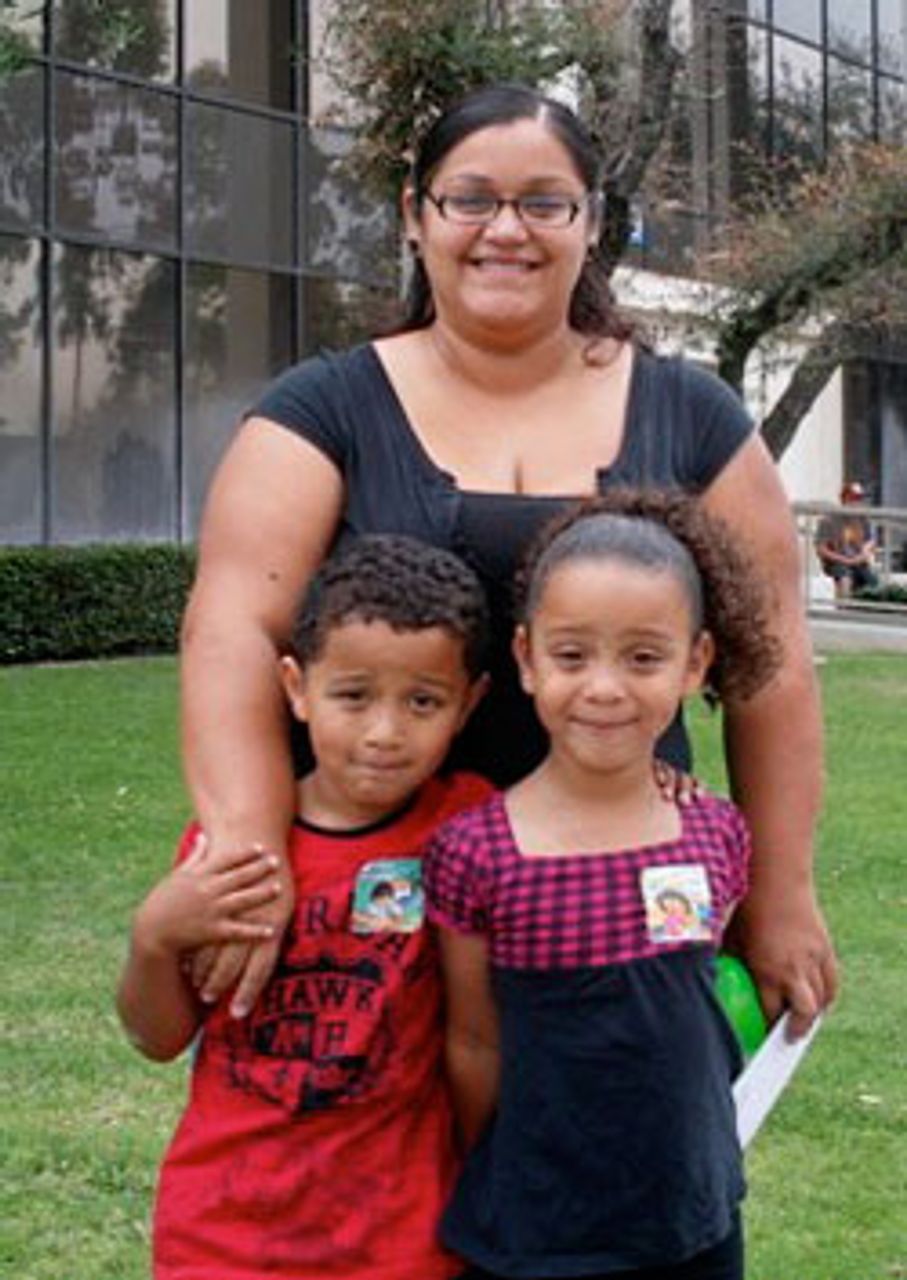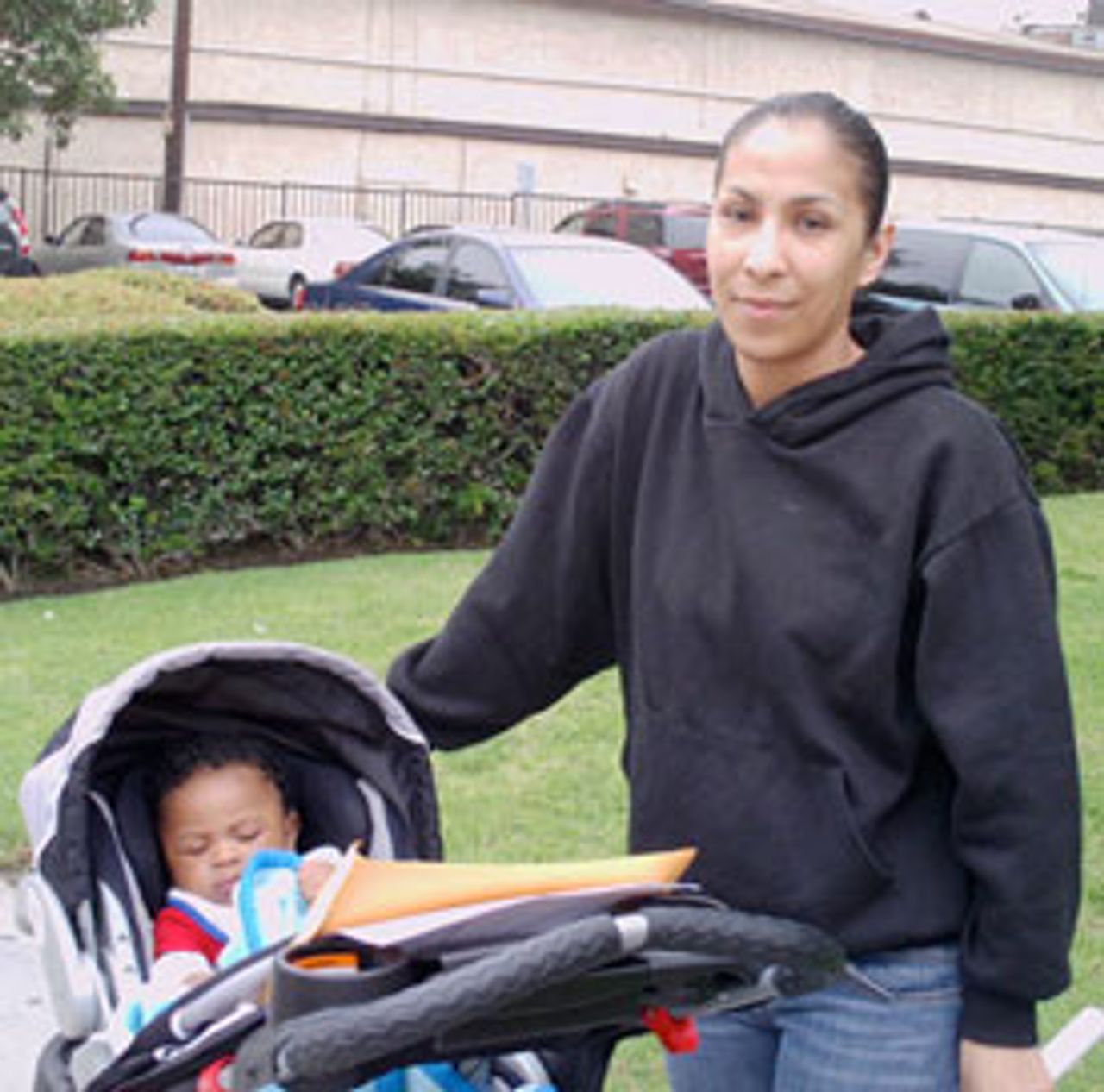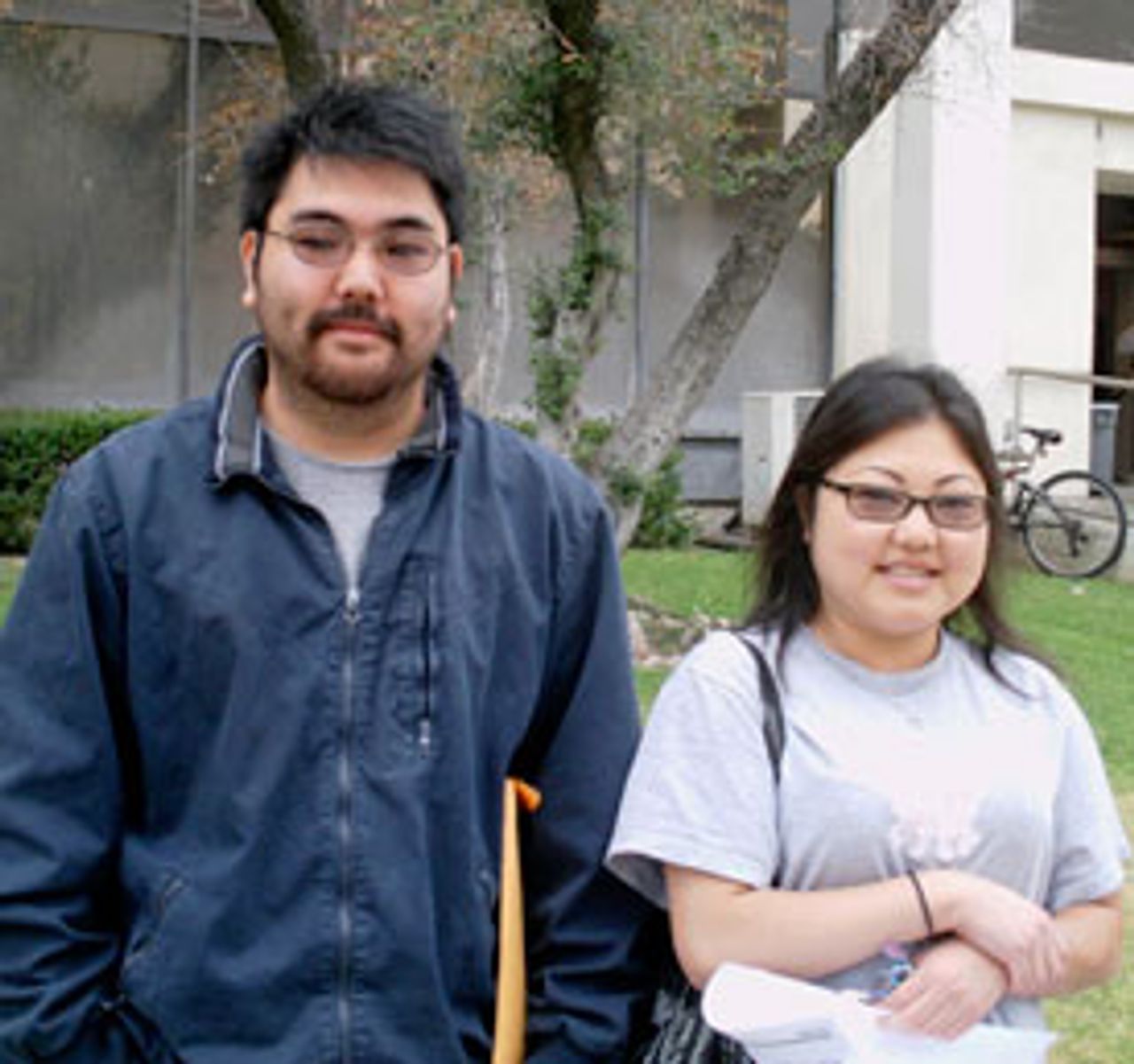The centerpiece of California Governor Arnold Schwarzenegger’s state budget proposals is the wholesale elimination of the CalWORKS program, the state’s welfare-to-work program begun in 1997.
Over 1.4 million low-income people, including 1.1 million children, are served by this program. The maximum monthly grant for a family of three is $694, or 45.5 percent of the federal poverty line, and is the exact amount that families received in 1989-90 without adjusting for inflation. For many, the CalWORKS check pays the rent or covers childcare expenses.
Over a week has passed since July 1, the start of the new fiscal year, and the state legislature has failed to pass a budget to close the $19 billion budget gap. In May, Schwarzenegger outlined his “budget revise,” which he himself called “absolutely terrible cuts” to the most impoverished sections of the population. A spokesman for the governor warned that each day of the new fiscal year without a budget plan would cost taxpayers an additional $52 million.
Ending CalWORKS as of October 1, 2010, would “save” the state $1.2 billion in 2010-11. According to californiabudgetbites.org, this cut would amount to 6.3 percent of the $19.1 billion in the governor’s proposed May Revision, even though the program’s spending makes up only 3 percent of the state budget.
Already there have been protests in several cities. On June 26, 250 parents and childcare providers in Montebello, a suburb of Los Angeles, held a protest. Martin Castro, president of the Mexican American Opportunity Foundation (MAOF), said, “The economic impact in MAOF’s service area would be severe. More than 8,000 children would lose childcare; 3,400 childcare providers would lose their jobs; 425 full-time employees would be laid off, and our service area would lose $46 million in annual funding to support these programs.” One childcare provider said she would be forced to close and would probably lose her home.
Included in Schwarzenegger’s proposals were cuts to other programs affecting the poor:
• $750 million from the state’s In-Home Supportive Services program
• $532 million from Medi-Cal, the state’s Medicaid program
• $15 million from Healthy Families, California’s children’s health insurance program.
In addition, the governor’s proposal relies on the assumption that the state will receive $1.8 billion in federal funding to help cover Medi-Cal costs. Legislation for providing that funding was stalled in Congress, prompting governors across the country to lobby for an extension of the aid.
CalWORKs is the state’s Temporary Assistance to Needy Families (TANF) program, established by the Personal Responsibility and Work Opportunity Reconciliation Act of 1996, which abolished Depression-era entitlements to “end welfare as we know it” carried out under the Clinton administration. With the exception of some disabled individuals, recipients must find jobs and work, undergo vocational training or participate in community service activities for at least 32 hours a week.
According to Jo Weber, director of the Sonoma County Human Services Department in northern California, who wrote in to the Press Democrat, “To receive CalWORKS, a family must have income below the poverty level. The official poverty level for a two-person family is $1,214 a month. Assistance through CalWORKS doesn’t even bring a family up to the poverty level.”
In response to recent media articles charging that welfare recipients are making withdrawals at ATMs at casinos, Weber replied, “Most recipients are required to work, and in Sonoma County, a few have occasionally been employed in or near casinos. At such low-income levels, many CalWORKS families do not have reliable transportation, and they understandably use an ATM that is closest to their home or work.”
The WSWS interviewed several people about their situation at the Norwalk Department of Social Services. Across the street in front of the court building were people working for investors or individuals bidding in an auction for foreclosed homes.
 Blanca Fortson and her twins, Ajaye and
Blanca Fortson and her twins, Ajaye andNadia, five, used the CalWORKS program
Last year Blanca Fortson was on CalWORKS for six months through the Downey Job Club, which operates through the Los Angeles County Office of Education. After working three years for Nissan as a receptionist/data entry person, the company closed and laid-off over 100 people, including Blanca. Her children, Nadia and Ajaye, five-year-old twins, just finished kindergarten. She receives food stamps and has Medi-Cal for her children.
“I went to the Job Club, where they showed me how to update my resumé,” Blanca told the WSWS. “They helped me with childcare while I looked for a job. It helped me out a lot. I couldn’t find a job, but I did get a lot of help out of that.
“They actually helped me with my bills. After they gave me my new ID, they gave me a discount at work. I took it to the DMV (Department of Motor Vehicles), and they helped me with that. They help with getting appliances if you’re moving into a new place. If you don’t have a refrigerator, they’ll help you with that or a stove. I appreciated it when I had it.
“The Job Club will give you an allowance for clothes if you need clothes to go to an interview. You can use their computers and access the Internet so you can update your resumé. They also give you information about where you can find a job.”
 Laquei Tarlton
Laquei TarltonLequei Tarlton, who came with her infant daughter, is a history major at El Camino College and works for the Compton Unified School District as an afterschool teacher.
Lequei told us, “I’m a student, and I also work. I’m going to be a teacher, so we really do need the programs. It saddens me to know that they’re cutting a lot of the programs for our children. I’m trying my best to work as well as go to school to better my life as well as hers. For me, Medi-Cal is what I need. Otherwise, my daughter won’t have any kind of coverage that I can afford. I can’t afford it. So for them to try to cut it out is unfortunate. I’m an ordinary person. I’m trying as hard as I can to better my life.
“If you have things in the hands of the rich, they’re only going to make sure that they get richer. They don’t worry about the working class, and that’s what keeps the economy moving. If you don’t have the working class, they couldn’t function a day.”
 Patricia Rivera and her infant son
Patricia Rivera and her infant sonPatricia Rivera came her with infant son. “They scheduled me for an appointment,” she said, “and my person (social worker) is not here. I’m a single mother. I really have no place to live, so I’m going from place to place. That’s pretty much my situation. I haven’t applied for welfare because I’m trying to get a job. I have no education, so pretty much it’s whatever I can get.”
Katherine Izu worked in her father’s business exporting Japanese products from the US to Europe and South America. After five years, his business was forced to shut down. Her brother graduated in computer science from University of California Riverside two years ago but hasn’t been able to find a job.
 Katherine Izu and her brother
Katherine Izu and her brother“With the inflation and the US dollar going low, we didn’t do so well,” Katherine said. “I had to leave. I left in December of 2009 and right now I’m looking for a job. I worked for my dad for a year, and prior to that I was at a Japanese food distributor for eight years; I left there to work for my dad.
“I applied for Medi-Cal because I just had a kidney transplant, so I need medical coverage. Right now, I’m looking for a job with benefits, but I haven’t had any luck. Already it’s July, and I haven’t found anything. Right now I just took a small part-time retail job, but they don’t offer any coverage.”
“This is the second interview. There are still some documents that I need. I have a daughter, so I need her birth certificate, and I need copies of paycheck stubs and bank statements. I have a car under my name so I need registration and things like that. I have to fax that over, and it takes 30-40 days [for a response].”
Kia Torrence came with her two children, Adajah, 9, and Courtney, 2. She worked for a trucking company for about three years, then transferred to another trucking company, which laid her off when the recession hit.
She said, “This is the first time I’ve ever had to be on the county [welfare], and it’s been a struggle. It’s been a major struggle. I’m trying to keep my Medi-Cal on for my kids. We have to go through a recertification process, and basically what the recertification process is, if the mothers don’t comply with giving the father’s information, they cut off the mother.
“So as of right now I’m cut off, but my kids are still able to be on because of Healthy Families. And I was also trying to get my food stamps turned back on, and I was supposed to be able to pick them up on the first, but because of county mistakes, they weren’t able to do it.
“And then just today they classified me as ineligible to get the food stamps in three days because I received my last unemployment benefits, which basically just covered my rent and my bills.
“Healthy Families provides a lot of coverage. It’s for the kids, as far as immunizations and getting them free medical services like emergency services. Sometimes they send us to these clinics, and the clinics are horrible. I was lucky enough to get my kids into Kaiser.”
Asked what she thought of Obama, Kia replied, “Honestly and truthfully, it ought to be a good thing with the whole racial thing, the first black president and things like that. But when you really get down to the politics about it, it didn’t really make any difference. It really didn’t make any difference whether he was Caucasian or whether he was African American. It all comes down to what the politics are. And if the politics aren’t there, then why should you care what color your president is? If he’s not making any changes or any differences, I just don’t feel that it was right. I wouldn’t have voted for either one.”
